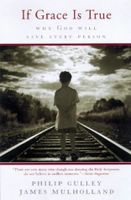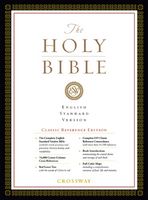IF A TREE FALLS IN THE FORESTThe indivisible link between existence and consciousness.MAIN ARGUMENT:
An old rhetorical question goes: "If a tree falls in the forest, and no one is there to hear it, does it make a sound?" Well, the correct answer is "no." Since "sound" is only possible given the following conditions:
1.) That there is a listener who has the ability to hear…his ears function normally.
2.) The listener knows what the definition of "sound" is, and can correctly identify a "sound" when he hears one.
If there is no "listener" then there is no sound. Sound is only given substance by a listener who can perceive sound.
Now, let's go one step further: can something exist (object) if no one exists (subject) who is aware of it's existence?
In order to answer that question, we must understand there is a strong relationship between consciousness and existence, they cannot be easily separated, if at all.
Our human sensory perception and our instrumentality is very, very limited; it is simply impossible for a single person to know of everything that exists. Nor is it possible for mankind, collectively, to know of everything that exists, and I'm speaking of just those things that are possible to detect given our limitations.
Nor can we say that we are the only conscious beings in this universe with absolute certainty, for we are simply incapable of perfect knowledge of this universe. Sadly, we are stuck, no matter how far we advance in our instrumentality, with limitations that we simply do not have the means to overcome.
But there is something we can be sure of: if we perceive that a being exists, it exists, even if that being is ourselves. Hence Descartes' axiom: "I think, there for I am." Or more accurately stated: I am conscious that I exist; I know what it means to exist (rationality); therefore I exist.
The only way we can know, for sure, that something exists is through our sense perceptions. But we already know that there are beings who's existence is not dependent upon our ability to perceive them. Most of us would not argue with the statement that "there are lions in Africa." Yet how many people reading this text are in Africa, in place where they are able to look up and see lions? You believe there are lions in Africa because perhaps you were in Africa once, and you saw lions when you were there. Or maybe you saw a television show or movie with lions, and were told that the location was somewhere in Africa. Or perhaps you saw lions at the local zoo, and the sign on the display stated that they came from Africa…
We, as human beings, rely very, very much on the testimony of others, and not on our own direct sensory perceptions. For some odd reason, we think this good enough, and it often is.
Now, back to the material world….
Imagine a non-conscious being that is completely impossible to perceive with our senses, could such a being exist? The answer is no. A non-conscious being's existence is very much dependent on it's ability to be perceived by a conscious, rational being. Why so? Because "existence" is only a concept in the mind of a conscious, rational being, and in order for existence to have any meaning what-so-ever, it is completely dependent upon the rational ability of a conscious being to think it and perceive it. Existence does not exist apart from consciousness.
Now imagine a non-conscious being that exists (object) without any conscious, rational being existing to perceive it (subject); can such a being exist? The answer is no. If there is no conscious rational being to perceive a non-conscious being, then it is not possible for that being to exist, it is a logical contradiction. The only way we can imagine a non-conscious being existing without ever being perceived by a conscious being is by our own rational consciousness. And if we are using our rational consciousness to perceive a non-conscious being, then that being is being perceived, if only in our mind's eye.
Existence only has meaning if there is a conscious, rational being who understands what "existence" means and can identify "existence" when he sees it. Surprisingly, without a rational, conscious being to perceive existence, then there is no such concept as existence! A statement like "imagine a universe where there are no conscious beings to perceive it's existence" is a logical contradiction. The only way such a universe can exist is if there is a rational, conscious being that can perceive it--if only through thinking--that such a thing exists!
This seems counter-intuitive, but it is a logical fact that existence is entirely dependent upon consciousness. However, it is not necessicarly dependent upon human consciousness. It is possible and logical to assume other rational, conscious beings that are able to perceive things, but who we ourselves, as humans, are unable to perceive, given our tremendous limitations in sensory perception. As a matter of fact, such beings may, in fact, be a logical necessity.
For instance, we are often told that our earth, sun, and stars have existed for billions of years before the first conscious, rational human being ever perceived them. If we assume that humans are the only rational, conscious beings in this universe (which is a logical assumption given that we know of no other rational, conscious beings similar to ourselves), then we are faced with a bizarre dilemma: the earth, the sun, and even the stars never existed before the first conscious, rational human being! They literally did not exist. Why couldn't they exist before the first human? Because existence and consciousness are bound together, and cannot be logically separated.
But what about the fossil record, radio-metric dating, geological dating, and all those other measurements that point to the fact that the earth, sun, and stars were here long before us? Well, if human beings are the only conscious, rational beings in this universe, then all those measurements are utterly meaningless.
But it's not only the history of the universe that becomes suspect, but even human history! I've been told that there was once this person named George Washington who existed, but no longer does. Can I used any of my sensory perceptions to verify that George Washington existed? No I can not, because my sensory perceptions are bound to time, and George Washington, I am told, existed before I did. Hence, my only recourse is to believe the testimony of others, whether it be through their words or their art. Even if someone were to show me George Washington's bones, I could only believe it were George Washington through someone's testimony, not being able to go back in time and watch George decay for myself.
Hence, there must be something beyond our rational, conscious sense perceptions if all these historical accounts have any truth to them. This something must necessarily even be beyond a collective human consciousness. Otherwise, we face the dilemma proposed by the famous Bertrand Russell thought experiment: suppose everything we perceive were just created five minutes ago, including our perception that we've been here much longer; can we prove such a proposition wrong? The answer is no. The problem is due to our limitations as creatures of time.
In order for history to be true, in order for the earth to have existed before we did, then there must be rational, conscious beings who are able to perceive things beyond our own very limited perceptions. Such beings must necessarily live outside of the constraints of time and must be capable of perfect knowledge of everything in our universe. In fact, they would have to live beyond the constraints of our universe, as it seems our physical laws would impair their ability to know our universe perfectly. It is logical and possible to propose that their exists "something" beyond our own universe, a place where our universe can be perfectly perceived but not be bound to our laws and limitations.
These beings must necessarily be rational (capable of logic) and conscious, for beings that do not have the properties of rationality and consciousness can not possibly exist without some conscious, rational being to perceive them. It is a logical impossibility.
The reason why these beings must necessarily exist is because consciousness and existence are logically bound together, and our own world and it's history could not logically exist unless there are rational, conscious beings who are, in effect, perceiving it for us! In other words, their perception of our existence (and our universe) allows our universe to exist, and to even have a past and future. Our very limited consciousness and knowledge does not allow us to sustain our own universe.
It is also necessary for these beings to be complete in themselves: they do not need yet another set of beings beyond them to perceive them, but the are capable of perfectly perceiving each other, there universe, and our universe. Otherwise, we are just begging the question.
Surprisingly, it might be necessary for there to be more than one of these beings, otherwise a lone being, living outside of time and before our universe (or any universe), would have nothing to perceive but himself, which is a possible logical contradiction. Can a being be conscious of just itself, or must there must be something beyond yourself to perceive, even if it is just another being?
It is necessary that these beings always existed, and have never not existed. While that is seemingly impossible given our limitations, it does not violate any laws of logic.
One cannot speak of existence existing before consciousness. If there is no consciousness, there can be no existence of any kind. Surprisingly, you cannot even speak of "nothing existing", for that is a logical contradiction, for the only way "nothing" can exist is for a consciousness to perceive it, hence a consciousness would exist, therefore something exists. You either have existence or you do not.
One also cannot speak of consciousness existing before existence, since if consciousness exists, then so must existence.
And, most surprisingly, rationality must co-exist simultaneously with existence and with consciousness, and not precede nor come after them. In order for a being to know it exists and know it is conscious, it must necessarily be able to understand non-existence and non-consciousness, even if it is impossible for it to have those traits! For instance, if two of these beings co-exist, they would know there are two, and not three, or one, or twelve million. (It may even be necessary for there to be more than two of these beings, perhaps at least three or more, for if there were just two you might have a bizarre situation where the one being, seeing the other, thinks he is perceiving himself! Having three or more would eliminate that problem.)
To summarize:
1. Existence and consciousness cannot be logically divided, they are necessarily bound together due to the laws of logic.
2. Surprisingly, rationality, often described as a property of consciousness, cannot be logically separated from consciousness and existence, for you cannot even know what existence and consciousness is without being aware of non-existence and non-consciousness.
3. Since our own ability to perceive our universe is extremely limited, we, as human beings, do not have the ability to sustain our universe's existence through our own consciousness and rationality. If everything that exists must, by logical necessity, be perceived and known, then there must be a rational, conscious set of beings who are able to perfectly know our universe for our benefit. This would include both tangible (i.e. material) and intangible (i.e. laws of logic) elements.
4. Since our physical laws and limitations of our universe make it highly unlikely (if not impossible) for these beings to exist within our universe, they must necessarily exist outside of it, not bound by our limitations.
5. Since they exist outside of our limitation of time, they have always existed and have never not existed.
6. And since it is a possible contradiction for a single being to have a consciousness awareness of only himself, there might be a multiplicity of these beings.
7. Assuming our universe had a beginning, these beings must act as our "witnesses" to sustain our universe's existence. It could be rightly said that their perfect knowledge of our universe is the foundation that allows our universe to exist!
8. Whether or not these beings created this universe of ours, or even want us to know who they are, is beyond the scope of this argument. However, there is an implied causality, and if there is an effect (our existence as humans), it is logical to assume a cause.
The most important point to remember is this: consciousness and existence are inseparable, but since our knowledge as human beings of all that exists is very limited, then there must be other beings who are perfect in knowledge, and who act as the means by which our universe exists.










